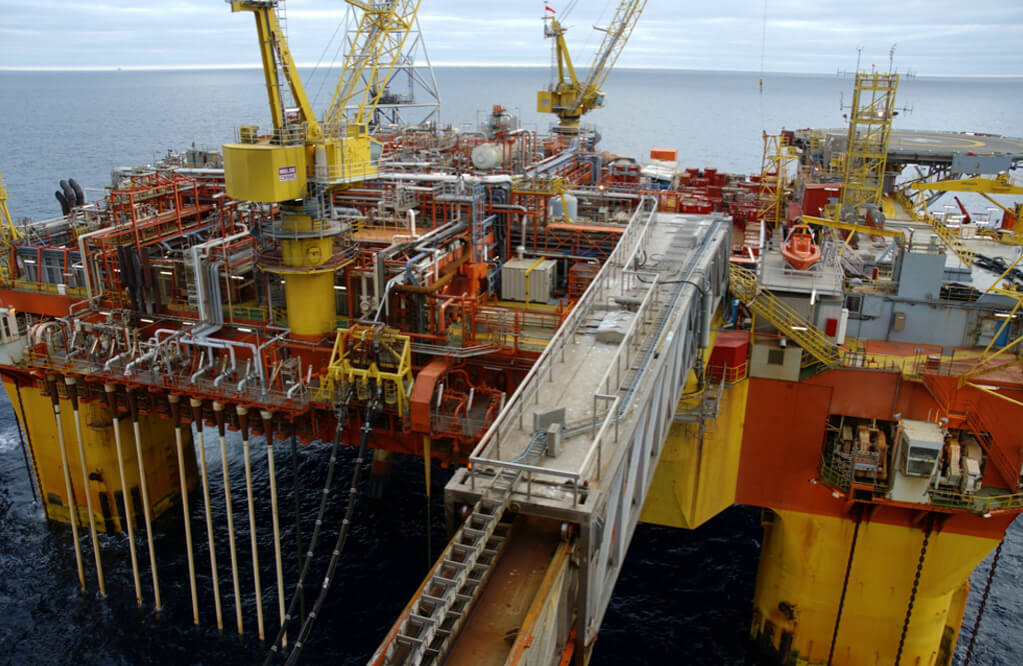Tag Archive for: OPEC
Russia says better Iran-Saudi Arabia ties would help oil prices: RIA
/NewsRussia wants to see improved relations between Iran and Saudi Arabia at a time when joint action is needed to influence global oil prices, the RIA news agency on Monday quoted Zamir Kabulov, a senior official at Russia’s Foreign Ministry, as saying.
Russia, one of the world’s top oil producers, has repeatedly refused to cooperate with the Organization of the Petroleum Exporting Countries in recent years despite the falling price of oil, the lifeblood of its economy.
Any hope of sealing a global output deal has so far foundered on Iran’s position. Tehran is boosting production to try to regain market share after sanctions were lifted, paving the way for it to re-enter the market after a long absence.
The prospect of cooperation between Iran and leading producer Saudi Arabia is further complicated by the fact that the two countries are geopolitical foes who support different sides in conflicts in both Syria and Yemen.
“We all need stability on the oil market and a return to normal (crude) prices,” RIA quoted Kabulov as saying.
“And these are the key nations, especially Saudi Arabia and Iran, which is striving to return to the oil market, anticipating the removal of sanctions.”
Some OPEC countries are trying to achieve a consensus among the group, while some non-members back an oil production freeze, sources familiar with the discussions said last week, a possible attempt to tackle the global glut without cutting supply.
Top exporter Saudi Arabia might be warming to the idea, though it was too early to say whether it would give its blessing because any deal would mainly depend on a commitment by Iran to curb its plan to boost exports, the sources said.
Even as officials on both sides discussed the possibility, Russia and OPEC continued to pump oil at some of the highest levels in recent times last month, suggesting both were locked in a fierce struggle for market share.
Benchmark Brent crude LCOc1 has fallen around 70 percent since mid-2014
Copyright: Reuters
Saudi Arabia, Venezuela talk of co-operation to stabilize oil market
/NewsSaudi Arabia’s oil minister Ali al-Naimi discussed cooperation between OPEC members and other oil producers to stabilize the global oil market with his Venezuelan counterpart on Sunday, state news agency SPA reported.
Venezuela’s Oil Minister Eulogio Del Pino, who is on a tour of oil producers to lobby for action to prop up prices, said his meeting with Naimi was “productive”, his ministry reported.
Cash-strapped OPEC member Venezuela has been calling for an emergency meeting of producers to discuss steps to prop up prices, which are close to their lowest since 2003.
The prospect of supply restraint by the Organization of the Petroleum Exporting Countries and rivals helped oil prices LCOc1 rise above $34 a barrel on Friday from a 12-year low close to $27 last month, despite widespread scepticism that a deal will happen.
“It was a successful meeting and (conducted) in a positive atmosphere,” SPA cited Naimi as saying.
Both ministers discussed Del Pino’s visits to other oil producers and the outcome of his “meetings that aim towards the cooperation of those countries to stabilize the international oil market”, Naimi said.
“During the meeting, there were discussions about the cooperation of the producing countries within OPEC and outside (OPEC)… and the importance of the continuation of such consultations,” SPA added.
However, the comments by Saudi Arabia, the world’s largest oil exporter, show no indication of a shift in the country’s policy of refusing to cut supplies to prop up crude prices, some OPEC delegates said.
“They seem like just general talk about cooperation, but nothing about cutting production,” said one OPEC source.
“It’s always good to say discussions were positive and productive. Never say they were negative. The issue is not with Venezuela, it is with Iran,” said another OPEC source.
Sources familiar with the matter say Iran is reluctant to restrain crude supply as it wants to recover the market share it lost during sanctions that were imposed in 2012 because of its nuclear program. International sanctions were lifted in January.
OPEC oil production jumped to its highest in recent history in January as Iran increased sales and its rivals Saudi Arabia and Iraq also boosted supply, a Reuters survey showed.
Last Wednesday, the Iranian news agency Shana quoted Del Pino as saying six producing countries, including OPEC members Iran and Iraq and non-members Russia and Oman, supported a producer meeting.
But so far, none of OPEC’s Gulf members, including OPEC heavyweight Saudi Arabia, has publicly backed a meeting.
Copyright: Reuters
Five Reasons Oil Is Driving The Stock Market
/NewsAt its basic level the price of oil is a product of supply and demand. Other factors such as political turmoil can influence it but the main factor is supply and demand. At times and especially now oil is viewed as a proxy for the global economy, which has a ripple effect on the stock market. Over the past month the changes in the price of oil have had a very large influence on the US and international stock markets. There are at least five reasons for this which I’ve outlined below.
1. Lower oil prices may signal the global economy is slowing
Commodities such as copper and oil can be signals that worldwide economic growth is accelerating or decelerating. Oil was $100 a barrel in August 2014 and went into free fall to $45 in January 2015. It bounced back to $60 between May and June and then went into a slide and has been trading between $30 and $35 for the past month.
While lower oil prices are positive for US consumers and other countries that are large oil importers such as China, Japan and most of Western Europe concerns about lower growth rates in China are negating the benefits. China had been the driver for increased oil demand over the past five years and with oil prices collapsing it appears that its economy may be slowing more than anticipated. This is also exacerbated by concerns that the economic data released by China is rosier than it actually is.
2. Oil export nations are tapping into their stock holdings
Every large oil exporting country budgeted their tax revenues from oil at much higher levels. Saudi Arabia had $635 billion in foreign exchange reserves as of November 2015 and withdrew almost $100 billion from global asset managers over the past year. Russia’s monetary reserves dropped by $40 billion and could be exhausted in 2016.
For the 11 OPEC countries it is estimated that their budget deficits increased from $17 to $278 billion in 2015. At the current oil price their deficits will be larger in 2016. Norway has one of the largest sovereign wealth funds at $805 billion and is tapping into it to fill its budget gap. While not all the assets that these companies are selling are equities a large percentage must be due to their liquidity. This creates pressure on stock prices.
3. Oil companies cutting spending
As oil prices went over $100 the oil sector boomed in the US and one state that very high correlation of 0.9 for the 50 day rolling average between the S&P 500 and the price of oil. Back in 2013 people with no experience were being paid $100,000 and unemployment was 1% compared to the national rate of 7.5%.
Certain parts of Texas have also been hit hard. I saw a news story about a small oil supply firm that has seen its business drop 90% with only safety related equipment being sold. Another has laid off over 150 of its 200 employees. Exxon also announced that it was cutting its capital expenditures in 2016 by 25% which is billions of dollars.
4. Bank loans to the oil sector
Investors are concerned that a large number of loans that allowed US oil companies to rapidly expand fracking operations over the past few years will default. These companies took on a lot of debt based on higher oil prices and are now hanging on by a thread. While the oil companies continue to pump as much as they can, as long as it covers the marginal cost of extracting it, they are trying to generate enough cash to service the debt and stay in business. This of course keeps prices lower.
The ripple effect for the banks is if they have too much of their loan portfolio lent out to these companies the banks will have to write off a large portion of the loans. Investors are taking more of a shoot first (sell bank stocks they believe are exposed) and ask questions later. Having the price of oil stay low only makes this item worse.
5. Algorithms are driving stock movements based on oil price changes
There is a lot of fast money that gravitates to whatever trading system works. For at least the past month there has been a very high correlation of 0.9 for the 50 day rolling average between the S&P 500 and the price of oil (1.0 being that two assets trade in lock step, 0 being there is no relationship and -1.0 being they move in opposite directions).
Copyright: Forbes
No Decision Yet on OPEC, Non-OPEC Meeting, Some in OPEC Skeptical: Delegates
/NewsOPEC has not yet scheduled any talks with Russia and other non-OPEC countries aimed at supporting oil prices, two OPEC delegates said on Tuesday after Russian officials talked up potential cooperation with the exporter group.
Russian Foreign Minister Sergei Lavrov said Moscow was open to further cooperation in the oil market with OPEC and non-OPEC countries.
The prospect of supply restraint by the Organization of the Petroleum Exporting Countries and rivals has helped oil prices rise above $32 a barrel from a 12-year low close to $27 last month, despite widespread scepticism that a deal will happen.
OPEC delegates have previously suggested OPEC and non-OPEC could hold talks in February or March. But no date has been scheduled, and one delegate said OPEC did not have a common view on the aim of such a meeting.
“There is nothing from OPEC yet. It is not fixed,” an OPEC delegate said, who added that expert-level OPEC meetings with non-members held in 2015 did not result in supply cuts.
“We had two meetings before. The two sides discussed the market, but there were no concrete steps.”
A second OPEC delegate said there was little point in OPEC holding a meeting with non-OPEC until OPEC itself had agreed a common position. For example, Iran, after the lifting of Western sanctions, wants to recover market share, a source familiar with the matter said last week, not cut output.
“Some of them, OPEC member-countries, are not sure what we are going to do in this meeting with non-OPEC,” the delegate said. “If the meeting takes place without results, we’ll have a big problem with the market, the price will go down.”
Venezuela has called for a standalone meeting of OPEC to discuss steps to prop up prices. But a number of OPEC members have reacted coolly to the idea, suggesting no meeting will take place.
Copyright: New York Times
Oil Price Will Increase in Next ‘Few Months’
/NewsOil prices will only stay at current levels for the next few months, according to Stuart Amor, the ex-head of oil and gas research at financial advisory firm RFC Ambrian. Amor, who made the statement in a presentation at the Finding African Oil event in London Monday, which was attended by Rigzone, said that around 10 percent of non-OPEC supply is cash-flow negative at the operating level in the low oil price environment affecting the industry today. “At $30 per barrel, which is where we are today, about ten percent of non-OPEC supply is cash flow negative at the operating level, so I don’t think the oil prices can stay down here for more than a few months. If they do, then some of that supply is going to get shut-in,” Amor said, addressing oil and gas delegates at Finding Petroleum’s conference. In spite of the decreasing oil price, Amor suggested in his presentation that the oil and gas industry wouldn’t see an increase in M&A (merger and acquisition) transactions until the volatility of crude prices subsided: “The biggest determinant in the number of M&A transactions is the commodity’s volatility. Highly volatile prices, particularly at the long end of the curve, and we’ve seen a lot of that over the last couple of weeks, make it much harder for buyers and sellers to agree prices. So we live in an uncertain world and it’s got a whole more uncertain in the last two weeks. Indeed the recent spike in crude volatility hasn’t been seen since the height of the global financial crisis in 2008. That will need to change for a lot of M&A transactions now to occur.” Amor held the position of head of oil and gas research at RFC Ambrian for almost four years, covering several Africa-focused mid-cap and junior oil companies including Tullow Oil, Ophir Energy, Seplat and African Oil Corp. He was previously the head of global equity research at ING.
Copyright: RIGZONE
OPEC decision to keep output high pulls oil prices close to 2015 lows
/NewsCrude prices fell on Monday in the first trading session after OPEC-members failed to agree on output targets to reduce a bulging glut that has resulted in oil prices falling by more than 60 percent since June 2014.
The Organization of the Petroleum Exporting Countries failed to agree on an oil production ceiling on Friday at a meeting that ended in acrimony after Iran said it would not consider any production curbs until it restores output scaled back for years under Western sanctions.
This compounded an oil glut that sees production exceed demand between 0.5-2 million barrels per day and that has resulted in a more than 60 percent price drop since 2014.
U.S. crude was trading at $39.58 a barrel at 0038 GMT, down 39 cents. Internationally traded Brent futures were down 16 cents at $42.84 per barrel. This left both benchmarks near 2015 lows and not far off levels seen during the peak of the global financial crisis of 2008/2009.
Analysts said that OPEC would likely maintain its production around current levels of 31.5 million barrel per day and that a decision on how to handle new volumes expected to come to the market once western sanctions against Iran are dropped would be delayed until the group’s next meeting in June 2016.
“Past communiques have at least included statements to adhere… or maintain output in line with the production target (of 30 million barrels per day). This one glaringly did not,” Barclays bank said.
Not only did OPEC decide to keep its output target high, but analysts said that it would likely continue to exceed its quota as individual members offer discounts to customers in defense of market share.
Barclays said that OPEC faced an “impossible trinity of achieving higher market share, higher prices and higher demand through a nominal target which members continue to breach.”
As a result of ongoing oversupply, analysts said that prices would fall further, with Goldman Sachs seeing a possibility of $20 per barrel.
“The effective removal of the OPEC quota leaves the market in a more vulnerable position. Prices are likely to weaken this week as the market turns its attention back on U.S. supply,” ANZ bank said, referring to near record U.S. crude inventories of almost 490 million barrels.
“The formal production target was not even discussed, essentially signalling to the market that members would continue production at individual requirements. With Iran exports likely to start increasing next year, this increases the likelihood of further weakness in crude oil markets,” it added.
Copyright: Bakken
Russia, Saudi Energy Ministers Discussed Oil Demand, Production, Shale
/NewsRussia and Saudi Arabia discussed the situation on the oil market last week and agreed to continue consultations, exchanging views on demand, production and shale oil, Russian Energy Minister Alexander Novak told reporters on Tuesday.
Even though the oil price has halved since last year on oversupply, Russia, the world’s top oil producer, has refused to cooperate with OPEC, where Saudi Arabia is the leading producer.
Both OPEC and Russia are instead increasing production in a move to defend market share.
Novak did say on Saturday that Russia was ready to meet with OPEC and non-OPEC producers to discuss the market and his comments have supported prices, although analysts have warned that relations may suffer over the two sides’ different positions on Syrian President Bashar al-Assad’s future.
Novak, who was in Turkey last week for a G20 energy ministers meeting, said he did not see a risk that relations between Russia and Saudi Arabia would worsen and said he had discussed global oil markets with Saudi Oil Minister Ali al-Naimi.
“We discussed the situation on the market in Istanbul, held consultations, exchanged views on demand, production, the shale oil revolution, (and) agreed to continue consultations,” Novak said.
Novak added that a meeting of the Russia-Saudi Arabia intergovernmental commission was scheduled for the end of October or the beginning of November.
OPEC’s Secretary-General Abdullah al-Badri said on Tuesday that the oil exporter group should work together with producers outside OPEC to tackle the oil surplus in the global market.
Novak’s first deputy, Alexei Texler, said last week that Russia would stick to its plans not to cooperate with OPEC.
Copyright: Rigzone

Latest News
 Breaking Barriers and Building the Future18 March, 2025
Breaking Barriers and Building the Future18 March, 2025 Fundamental factors to strengthen Pemex12 August, 2019
Fundamental factors to strengthen Pemex12 August, 2019 Offshore Project Development: The Road to First Oil26 July, 2019
Offshore Project Development: The Road to First Oil26 July, 2019







